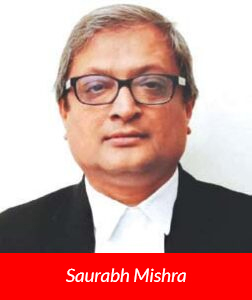 Legal aid for the poor and vulnerable is required for the maintenance of the rule of law, which is essential for the existence of an organised state. Until and unless a poor, uneducated individual receives legal aid, he/she is denied equitable access to the justice system. In recent years, the judiciary has taken an active interest in providing legal aid to the needy as a step towards making the legal system more accessible to the poor and disadvantaged.
Legal aid for the poor and vulnerable is required for the maintenance of the rule of law, which is essential for the existence of an organised state. Until and unless a poor, uneducated individual receives legal aid, he/she is denied equitable access to the justice system. In recent years, the judiciary has taken an active interest in providing legal aid to the needy as a step towards making the legal system more accessible to the poor and disadvantaged.
People who cannot afford the expense of accessing the legal framework are rescued by legal aid. Legal assistance also ensures that individuals have the right to welfare benefits, such as social housing, by providing access to legal counsel and the courts, which enforces welfare regulations. Legal aid services are viewed as the judicial arm of the war on poverty and the social justice movement.
Equality the foundation
Equality is the foundation of all contemporary jurisprudence and administration of justice systems. Insofar as a person is unable to gain access to a court of law for the purposes of redressing his wrongs or defending himself against a criminal charge, justice becomes unequal and the laws intended for people’s protection become meaningless and ineffective. There are remnants of legal aid in the elements of dharma. According to our extensive historical records, ancient Indian rulers placed justice on a pedestal and administered it regardless of birth, profession, or official standing.
The Indian Government has accepted and acknowledged the welfare state concept. The preamble of the India’s Constitution seeks to guarantee social, economic, and political fairness, freedom of thought, speech, belief, and opportunity. As a welfare state, it must promote the well-being of the general populace. The nation’s prosperity and expansion should trickle down to even the most remote community, providing the underprivileged with access to development.
Bring law to people
Legal aid is regarded as a social good, a crucial component of the Constitution, and an effective tool for resolving the dilemma of the poor. The primary objective of legal aid is to bring the law to the people, not the people to the law.
In addition, Article 39A of the Constitution of India supports the position of the policymakers, as it effectively addresses free legal aid and states that no citizen is denied access to justice on the basis of economic or other disadvantage. Through its substantial judicial interventions, the judiciary has persuaded and guided the legislature to enact appropriate laws to deliver justice to the doorsteps of the most vulnerable members of society.
In a series of court rulings, the Supreme Court has established that the right to free legal aid for the accused and the convicted is a fundamental right under Article 21 and a constitutional guarantee under Article 39A. In the landmark Supreme Court decision Hussainara Khatoon vs. State of Bihar, the right to free legal aid services, including the free services of a lawyer, for the most disadvantaged members of society has been recognised as a basic right under Article 21.
Formation of NALSA
Parliament enacted a second piece of legislation that gives legal assistance programmes a formal underpinning that follows a state-wide pattern. In conjunction with the Act, the National Legal Services Authority (NALSA) was founded as the apex organisation providing legal aid.
The passage of the Legal Services Authorities Act in 1987 and the subsequent formation of NALSA in 1995 gave this concept a formal foundation. Since then, it has come to represent the hope for the downtrodden. In reality, however, it is extraordinarily difficult, which stops it from fulfilling its full potential and denying the poor access to high-quality justice.
According to the India Justice Report 2019, more than 80 per cent of India’s 1.3 billion citizens are entitled for legal aid, but since 1995, only 15 million have received it.
The administration of legal aid is inefficient and lacks accountability in its treatment of applications. After obtaining application, finding an advocate may take weeks or months. Moreover, according to a 2018 CHRI Survey, the average period between application and assignment is 11 days, but NALSA regulations stipulate that a judgement must be rendered within seven days of application submission.
Objective negated
According to a report by Justice S. Muralidhar, the majority of resources are spent on administrative services rather than actual legal aid. Panel attorneys are not sufficiently rewarded, resulting in substandard client services. In numerous instances, advocates have been discovered pestering beneficiaries or seeking fees from them, which negates the objective of free legal aid.
The way forward is for lawyers, lawmakers, and the courts to recognise their duties in maintaining the goal of the Article 39A. As part of their professional responsibilities, both experienced and inexperienced advocates must represent the impoverished pro bono. The legislative and courts must mandate every advocate to take on a minimum number of pro bono cases throughout their tenure and implement a precise system in elevations to incentivise them, including giving senior advocates/judges preference for their legal aid experience.
Certain figures re-instil our faith in the framework of legal aid of the country as seen in the recent National Lok Adalat of 2023, more than 97.64 lakh pending and pre-litigation cases were settled. The current regime of Justices have also taken a proactive role in the promotion of Legal Aid activities. Chief Justice of India D. Y. Chandrachud has advocated for the use of technology as a means of bridging the gap in access to justice and championing the cause of Legal aid in the Country.
In India, the time has long since come for the country’s government, the legal community, and civil society to collaborate on efforts to improve the legal aid aspect of the legal system so that the primary objective of legal aid i.e. to bring the law to the people, not the people to the law is followed in letter and spirit.














 G20 podium
G20 podium

